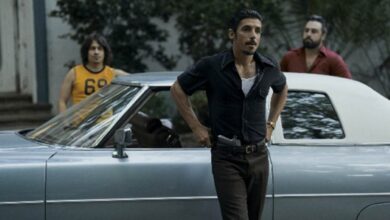Review of “The Fabelmans”: A Wonderful Story about Family and Cinema
Moving between reality and fiction, Steven Spielberg tells a part of his life in this film. This is our review of "The Fabelmans".

Photo: YT-Universal Pictures
LatinAmerican Post | Joshua Radesca
Listen to this article
Leer en español: Reseña de “Los Fabelman”: un maravilloso relato sobre familia y cine
Steven Spielberg is perhaps one of the most recognizable names in Hollywood. His extensive career, full of commercial and critical success, has made him one of the most influential directors in the modern film industry. He is a figure who has successfully walked through various genres. His filmography includes mythical titles such as "Jaws" (1975), "Indiana Jones" and "Raiders of the Lost Ark" (1981), "ET, the Extra-Terrestrial" (1982), "Schindler's List" (1993) and "Saving Private Ryan" (1998).
In his latest film, "The Fabelmans", Spielberg allows himself to look back on his life and, moving between biography and fiction, tell his story. In it, he transforms into Sammy Fabelman to recount significant moments of his childhood, his adolescence, his relationship with his family and how a strong bond was forged between him and filmmaking. The result is a personal and honest film, in which an indisputable love for cinema is evident.
The film has received 7 Oscar nominations this year. These are: Best Picture, Best Original Screenplay, Best Director, Best Actress (Michelle Williams), Best Supporting Actor (Judd Hirsch) and Best Original Score (John Williams).
Read also: Review of "The Whale": Redemption in the Midst of a Storm of Guilt
A Cinematographic Look at Family and Cinema
On the tape we are introduced to Sammy, a somewhat fearful child, who the first time he goes to the movies is shocked and scared by what he sees on the screen. In particular, he is struck by the derailment of a train, an image that comes to terrify him in his dreams. With the help of a video camera, given to him by his mother, and a toy train, the young man recreates the scene of the accident at home in order to face his fear and overcome it. This is how his love for cinematographic creation born.
The tape draws the way in which Sammy's fascination for cinema emerges. A taste that matures over the years until it becomes a passion that is linked to its identity. Making movies is a way of expression for this character, a way of getting closer to others, especially his family, as well as a means with which to deal with various conflicts throughout his life.
The tape presents us with the transition from childhood to adulthood of the main character. “Los Fabelmans” immerses us fully in the bosom of this family and makes us part of its dynamics and problems. Both Sammy's relationship with the cinema and his relationship with his parents are important axes. With both, he will experience periods of great love and closeness, and periods of distance, motivated by conflicts and disappointments. The way the young filmmaker deals with this is one of the central elements of the story.
Special importance has Sammy's relationship with his mother, Mitzi Fabelman. She is a pianist who, after getting married, puts aside her dreams and which motivates Sammy in his desire to make movies. As the film evolves, and the son discovers the more human sides of his mother, especially her mistakes and anguish, a wedge opens between them. For his part, his father, Burt Fabelman, is a calm and loving man, committed to his work as a computer engineer. He supports his son in his “hobby”, but is worriedly disappointed at the idea that he wants to dedicate himself to it professionally.
Likewise, anti-Semitism is a theme that the tape exposes. It recounts Sammy's expertise as a Jew growing up in the United States in the 1960s and 1970s. Something that will not be easy, since he will have to face harassment and aggression.
“Los Fabelmans” is a story about ties and needs. Creating gives Sammy control and gives meaning to his existence. Just as the cinema has marked him, with its joys and obstacles, his family, with its area of light and darkness, has impacted him, becoming a part of him. This is what Spielberg wanted to expose: the relationships that have defined him and that became part of him.




